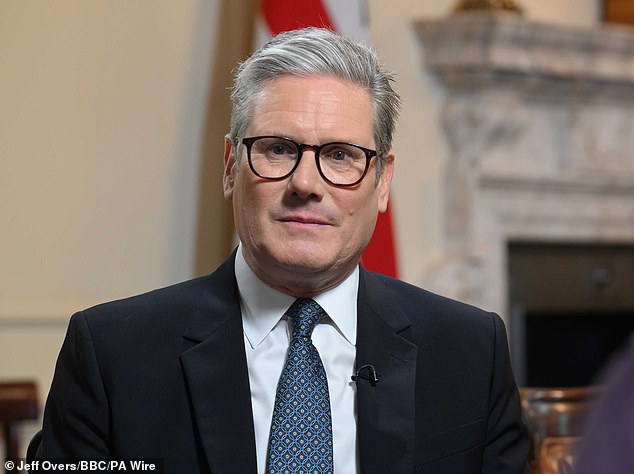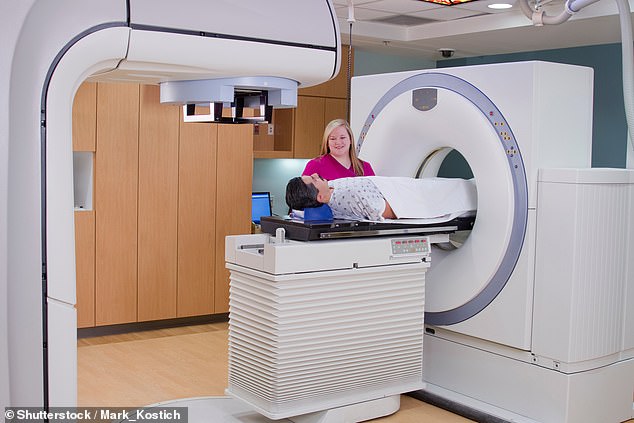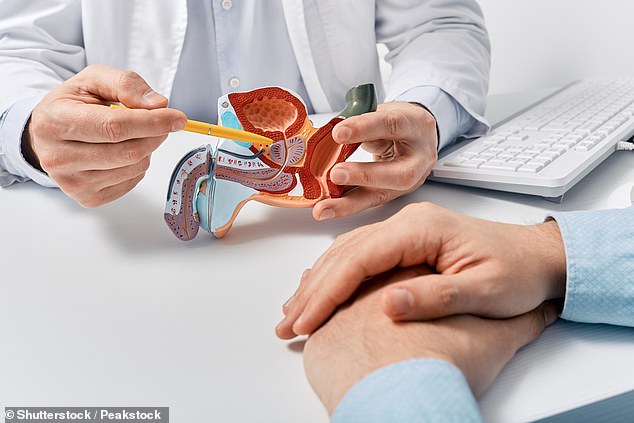Cancer deaths will rise by 17 per cent over the next five years under Labour, charity warns
A charity has warned that cancer deaths will rise by a sixth during Labour’s first term compared with the past five years.
An analysis by Cancer Research UK has found that there will be around 912,000 deaths from all types of cancer in the UK between now and 2029. That’s a 17 per cent increase.
Experts also predict that the number of new diagnoses will increase by more than a fifth in the same period – a total of around 2.2 million. They urged the government to develop a long-term strategy for the disease, with a focus on research funding, early diagnosis and prevention.
Michelle Mitchell, from Cancer Research UK, said: ‘These figures highlight the devastating impact cancer continues to have on patients in the UK. Behind every worrying statistic is someone who could be losing precious moments with the friends, family and loved ones they leave behind.
Ms Mitchell called for ‘bold action’ to help people live longer, healthier lives. ‘Decades of research have seen cancer survival rates double over the past 50 years, but progress is slowing,’ she added.
‘The government must ensure it delivers on its commitments to tackle cancer and make the UK a world leader in research and care.
Michelle Mitchell (pictured) from Cancer Research UK called for ‘bold action’ to help people live longer, healthier lives. ‘Decades of research have seen cancer survival rates double over the past 50 years, but progress is slowing,’ she added.

Prime Minister Sir Keir Starmer. Experts predict that the number of new diagnoses will rise by more than a fifth over the same period – a total of around 2.2 million. They have called on the government to develop a long-term strategy for the disease

A patient about to undergo a CT scan. A Department of Health and Social Care spokesperson said: ‘We have inherited a broken NHS. Too many cancer patients are waiting too long for treatment and we are determined to change that (stock image)

A doctor shows a patient the male reproductive system. Peter Tomlinson, 81, from Worcestershire, said he worries the NHS is not ‘equipped’ to treat cancer after his experience being diagnosed with prostate cancer in 2009 after his wife Ali, herself a doctor, urged doctors to perform a biopsy (stock image)
‘There are no quick or easy fixes. Bold action is needed to help people live longer and better.
‘The government should develop a long-term cancer strategy that funds research and innovation, prevents and diagnoses cancer earlier, and addresses the pressure on the NHS.’
Peter Tomlinson, 81, from Worcestershire, says his experience has left him concerned the NHS is not ‘equipped’ to treat cancer.
He was diagnosed with prostate cancer in 2009 after his wife Ali, a doctor herself, urged doctors to perform a biopsy. After hormone therapy and radiotherapy, Mr Tomlinson said he emerged “relatively unscathed” but stressed that this was thanks to Ali.
Sadly, his wife was diagnosed with pancreatic cancer in 2013. Despite surgery and medication, she passed away in the fall of 2020 at the age of 72.
“My cancer was discovered early, not by my GP, not by a specialist, but by my wife,” Mr Tomlinson said.
‘GPs are under a lot of pressure and I know that early cancer symptoms can be hard to spot, but then you have the wait for the test. And then you have to wait for the test results.’
He added: ‘The government needs to understand the emotional impact cancer has on the patient.’
A Department of Health and Social Care spokesman said: ‘We have inherited a broken NHS. Too many cancer patients are waiting too long for treatment and we are determined to change that.
‘We are going to improve the survival chances of cancer patients by achieving all waiting time targets within five years. We are also doubling the number of MRI and CT scanners, so that no patient has to wait longer than necessary.’
